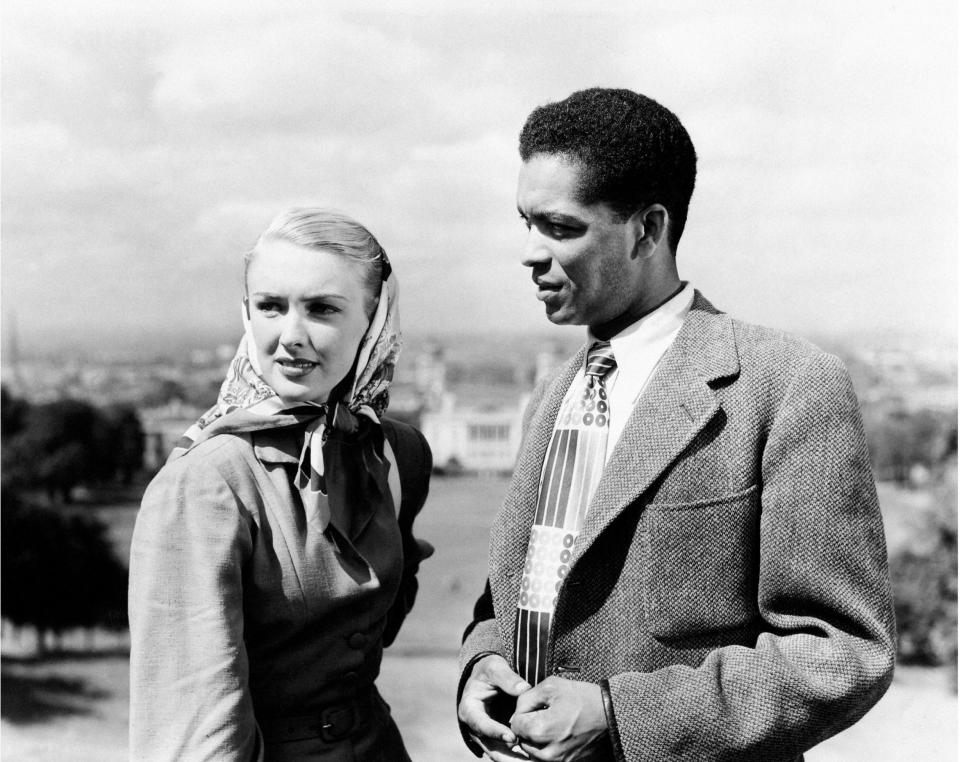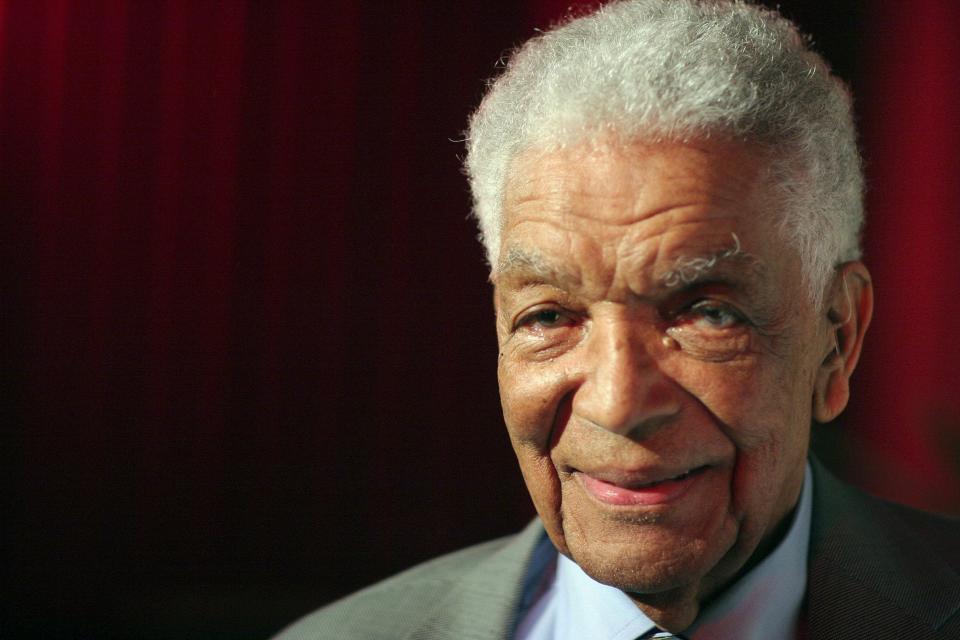Earl Cameron, black actor who challenged prejudice over a career lasting six decades – obituary

Earl Cameron, who has died aged 102, was one of the first black actors to win leading roles in British screen dramas, featuring in films such as Simba (1955), Guns at Batasi (1964) and Thunderball (1965), as well as in episodes of Emergency – Ward 10 and Doctor Who.
Cameron strove to bring dignity and decency to the parts which came his way, in an era when those that did were often stereotyped or superficial, despite their good intentions. The one which made most impact was probably his cinematic debut, Pool of London (1951).
A workaday crime thriller set in the Docklands, directed for Ealing Studios by The Blue Lamp’s Basil Dearden, Pool of London is of interest now chiefly for its sets, which show the capital still scarred by bombing.

At the time, however, it caused something of a sensation as the first British film to depict an inter-racial relationship, between the Bermuda-born Cameron’s merchant seaman and Susan Shaw, whom he courts in the parks and porticos of Greenwich.
Cameron’s only acting experience at that time had been theatrical and he was grateful to Dearden for teaching him how to be restrained on camera, rather than projecting. He recently confessed that he had fibbed about his age so as to be cast, shaving off his moustache to make himself look closer to 26 than 33.
The film led to other roles, among them the Mau Mau dramas Simba and Safari (1955). Yet while Cameron eventually had five children to educate – he put them through the Lycée Français in South Kensington – he tried to avoid taking parts as villains.
In Sapphire (1959, also directed by Dearden), which explored racial prejudice, he was a doctor, and in Guns at Batasi an (African) army officer opposite Richard Attenborough and Mia Farrow. Having been considered for the part of the Jamaican fisherman Quarrel in Dr No, he played the part of James Bond’s local contact Pinder in the Nassau-set Thunderball with Sean Connery.
The youngest of the six children of a stonemason, Earlston Jerusalem Cameron was born at Pembroke, Bermuda, on August 8 1917. In his early twenties, he joined the Merchant Navy and docked in London soon after the start of the Second World War.
“I got involved with a young lady and you know the rest,” he recalled. “The ship left without me, and the girl walked out too.” His colour made it almost impossible for him to find work, and he starved through the winter until being taken on as a dishwasher at Lyons’ Strand Corner House.
Tempted by March sunshine to go into work without his sweater, he caught pneumonia and was treated for months in hospital. Soldiers evacuated from Dunkirk were in the same ward and made bets on when he would die. Late in life, doctors told him that he had in effect survived for almost 80 years on one lung.
Through a friend, he heard that someone was wanted to fill in for an actor in the chorus of Chu Chin Chow, the long-running musical version of Ali Baba and the Forty Thieves. Although petrified by his first stage experiences, by the end of the war Cameron was touring India and Holland with Ensa.
While he experienced little direct racism during his early days in the theatre, he would have doors shut in his face when looking for digs on the road with a production.
But after greater recognition of his ability came, he was never tempted to try Hollywood, having been told by Sidney Poitier that discrimination there was worse. (Cameron was also concerned that his wife at the time was white and Jewish.)

Cameron appeared in several television plays which examined race relations, and later in programmes such as Danger Man, The Prisoner, Crown Court and Lovejoy.
In the four-part Doctor Who story “The Tenth Planet” – the first to feature the Cybermen, the last to feature William Hartnell, and the first to introduce the idea of a Doctor who regenerates – Cameron’s character is thought to be the first black astronaut seen on screen.
After a stint in Italian cinema, and following roles in films including The Message (1976), the story of the Prophet Muhammad, and Cuba (1979), with Connery again, Cameron’s career faltered. He had become a member of the Baha’i faith, crediting it with curbing his fondness for drink, and in the 1980s he moved to the Solomon Islands to open a centre for the religion and an ice-cream parlour.
Following the death of his first wife in 1994, however, he returned to Britain. In 2005, he had a major role as an African dictator in the UN-set thriller The Interpreter, with Nicole Kidman. He was also seen as a portrait painter in The Queen (2006), and in Inception (2010).

Cameron was appointed CBE in 2009.
One consolation of old age, he observed, was that “I’ve finally reached the stage in my life when I don’t have to take a second look at an attractive girl. And that has been a weakness. So I’ve made a lot of mistakes. A lot of things I’d have done different, if I’d only been wiser.” Asked if anything still surprised him, he replied: “Mr Trump!”
Earl Cameron married, first, in 1959, Audrey Godowski. He is survived by his second wife Barbara, whom he married in 1994, by the son and four daughters of his first marriage, and by a son from a previous relationship.
Earl Cameron, born August 8 1917, died July 3 2020

 Yahoo News
Yahoo News 
